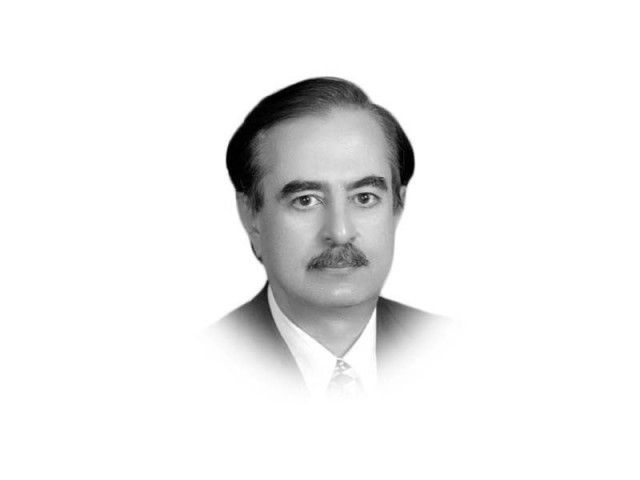Taxing the wealthy

The Federal Budget 2024-25 faces the same old dilemmas of balancing revenues and expenditures, containing current account deficit and inflation. Targeted budgetary deficit of 6.5% may actually end up around 7.5-8% of GDP.
As per best predictions, the growth rate is likely to hover around 2-3%. The prospective, new IMF deal, is likely to further result in contractionary pressures and inflation.
The traditional solutions, with a few embellishments, will perhaps not deliver unless retail trade, estate and agriculture are taxed while offloading loss-making SOEs and rationalising subsidies away from the undeserving endowed.
A strong case is made out for a tax on the super rich to reduce inequality, improve opportunity and economic efficiency. This is essential to augment state income to meet essential needs of socio- economic development, debt retirement and heavy security expenditure burdens.
As per UN SDGs, growing inequality affects 70% of the global population and threatens long term socio-economic development.
Such a progressive wealth tax on the country’s richest citizens will have minimum impact on the common man, being a direct levy imposed on the richest individual’s net worth, less liabilities, i.e. a tax on all forms of wealth that are owned or acquired like agricultural land, estate and housing property, industrial plants, stocks, deposits and bonds, gold and metals, residential and corporate property, machinery and goodwill.
The strongest rationale for a wealth tax is to reverse the age-old trend of rising inequality and to get more revenue from those most able to pay while reducing the burden on the needy.
Surprisingly, both WB and IMF have supported a wealth tax. The WB-IMF Conference on October 19th, 2021 noted “the persistence in income inequality”, proposing that a “progressive tax policy is one of the prime tools for addressing such inequality”.
Wealth tax is one of the surest means of reversing the current dominant regressive tax system that prevails throughout the world. As the wealth of the richest has increased by leaps and bounds, the tax rates on the rich have decreased as tax rates on the poor have proportionally risen.
Governments have implemented tax reforms favouring regressive, consumption taxes while reducing corporate taxes and taxes on the wealthy.
Wealth tax is necessary due to the, by now proven, rampant tax evasion by the wealthy who park their assets in tax havens setting up shell companies. Such dummy companies are meant to enable tax evasion and fraud, political corruption, violation of exchange laws and international trade sanctions.
In 2016 the Panama papers scandal revealed 214,430 fake accounts in which thousands of the richest of the rich of Pakistan were also mentioned. In the 2021 Pandora papers, nearly 700 Pakistani businessmen, bankers, generals, vice air- marshals, politicians and bureaucrats were disclosed owning offshore companies. In an environment of elite capture, no known action has been taken against those named in the Panama papers (except Nawaz Sharif), Pandora papers and Creditte Swisse revelations.
IMF researchers estimated in 2015 that ‘Profit Sharing’ (showing profits in favour of tax havens) by the multinational companies cost the developing countries around $213 billion, almost 2% of their national incomes.
Besides tax evasion the super rich also avail huge tax breaks or allowances.
Another progressive means to reduce inequality is inheritance tax and capital gains tax. The highest lineal inheritance tax rates exist in Japan at 55% of net inherited wealth, 50% in South Korea, 45% in France, 40% in the US and the UK and 30% in Germany.
Wealth and Inheritance taxes do not prevail at present in India and Pakistan. Bangladesh is an exception: under the Wealth Surcharge Finance Bill, 2023, a 10% wealth tax is leviable if the net wealth exceeds 40 million takas and 35% if the net wealth exceeds 1.0 billion takas.
In the absence of reliable data regarding the capital assets owned by the richest, one must look towards other countries. The richest top decile and more so the wealthiest percentile, and even more particularly, the richest one thousandth (0.1%) of the wealthiest own wealth, which generates annual incomes to them of nearly 40% of the total national income of the country. (Capital in The Twenty-first Century by Thomas Picketty) Their total wealth and capital assets in the shape of real estate, stocks, dividends and profits, including assets held in tax havens abroad, are equal to roughly 4 to 5 times the national income of the country, or 400 to 500 per cent of the total annual national output.
On the other hand the bottom 50% of the population merely live on their meagre salaries or wages; their total assets are a bare 5% of national income.
This super rich class, by all accounts, is highly undertaxed. There is also the problem of wide divergences between their declared and real wealth and incomes therefrom. But there’s no reason why institutions such as the FBR, SECP, SBP, FIA cannot access all the required information and data on individual assets of this class of the rich.
What is required is a progressive tax on this capital and wealth. A possible tax rate could be 0-1% of the wealth equivalent of $100,000 to $500,000; 1-2% on wealth between $500,000 and $5 million; 3% on capital worth $10 million to $50 million; and 5% on wealth more than $50 million.
This tax would be imposed upon the top 0.1% of the wealth hierarchy or about 220,000 individuals and must be levied on the basis of ownership of wealth rather than the residence of the assessee. If the average wealth of this group of the wealthy is assumed to be equivalent to roughly $100-200 million per individual owner, then an average revenue of up to Rs500-850 billion annually can be generated by levy of only a marginal average tax rate of 2.5%.
A government that is dedicated to reducing inequality and ameliorating the plight of the poorest must give serious attention to this policy intervention, even if some of its own supporters are offended to begin with.















COMMENTS
Comments are moderated and generally will be posted if they are on-topic and not abusive.
For more information, please see our Comments FAQ